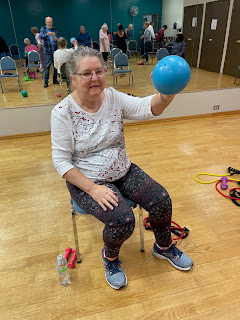When we were foster parents, I would often attend required meetings on the fifth floor of an Arlington County office building. I would look down to the street and think: “So many of these people down there are tearing down society. These are the people propping it up.”
There was a couple in their 70s who had dozens of foster children over many years. At this age, they decided against more difficult teen-agers and accepted only babies. Babies, in their 70s?
In Cluster Springs, I recently came across a family that has taken in 15 foster children over time, mainly through Halifax County Social Services. Why would they do that? “We did it to make the world a better place,” says Gertrude Slabach, who has had six of her own children with husband David. “Sometimes parents get tired and weary and make bad choices. The goal is to get the kids back to the parents if it is a safe place.”
We got into foster care in 1997 not really to save the world but because we felt our daughter Sara, age 8 and adopted from Honduras, needed company. . Sara got along wonderfully with a 10-year-old girl, our first foster child. The girl acquired a life-long interest in reading when a great teacher read the Harry Potter books in class. After she returned to her mother, we had a Guatemalan refugee whose father paid to send her to find work (unsuccessfully) in this country at age 14. Her primary language was a Mayan dialect, but she knew a little Spanish and so did we. That was our language at the dinner table. She was miserable in this country and eventually returned to Guatemala.
After that, we took two girls whose mother had a crack problem. Another child lived with us for a few weeks and took to skiing immediately on a nearby ski trip. And last came a 14-year-old former Russian orphan who was troublesome but who admitted later she just didn’t want a family. She was quite intelligent, and when I thought she had quickly plagiarized a paper off the Internet, I found that it was really her own work.
Then came the rewards. Last Thanksgiving, our first foster child came to our house with her husband and four wonderful children for dinner with Sara’s family.
We kept up with the last, difficult child, now an adult, who ended up getting a B.A. in psychology at George Mason University. And when I left my last job in 2009, she showed up unexpectedly at my retirement party. With a big smile, she proudly gave me a big hug and a huge bouquet of flowers. It was worth it!





